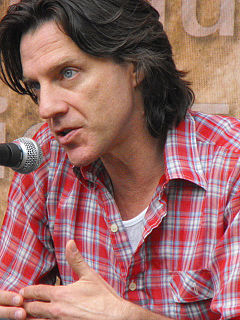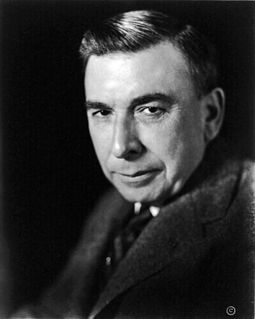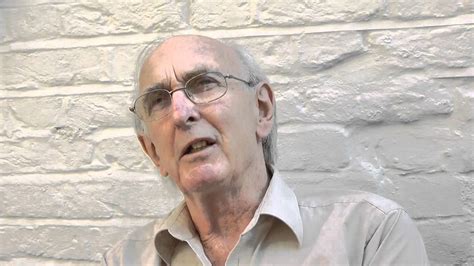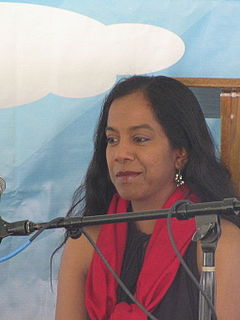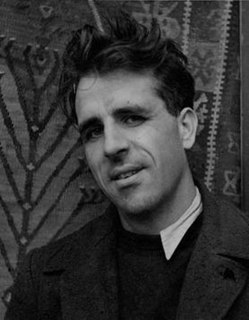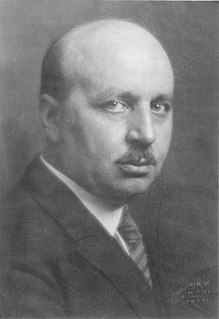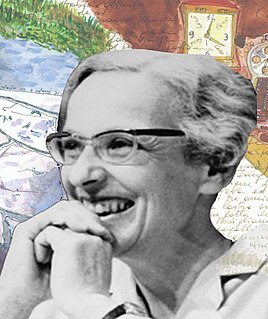A Quote by James Marsh
I remember from my school days Archimedes jumping into his bath and displacing water and coming up with his famous principle, and of course Isaac Newton being hit on the head with an apple. In other words, this realm of human knowledge - which is mathematical, essentially - can have a playful visual element to it.
Related Quotes
In a manner which matches the fortuity, if not the consequence, of Archimedes' bath and Newton's apple, the [3.6 million year old] fossil footprints were eventually noticed one evening in September 1976 by the paleontologist Andrew Hill, who fell while avoiding a ball of elephant dung hurled at him by the ecologist David Western.
Curiously, a principle affects your life whether you are aware of it or not. For instance, the principle of gravity was working long before the apple ever fell on Newton's head. But once it did, and he understood it, then we as a society were free to harness this principle to create, among other things, airline flight.
Isaac Watts, of course, is a hymn writer in the tradition of Congregationalism who lived in the seventeenth and early eighteenth century. He is very interesting and important because he was also a metaphysician. He knew a great deal about what was, for him, contemporary science. He was very much influenced by Isaac Newton, for example. There are planets and meteors and so on showing up in his hymns very often. But, again, the scale of his religious imagination corresponds to a very generously scaled scientific imagination.
Diatonic, he heard the word in his head. Chromatic, pentatonic, hexatonic, heptatonic, octatonic, each iteration of the scale opening innumerable possibilities for harmony. He thought about the Pythagorean major third, the Didymus comma, the way the intervals sound out of tune rather than as though they were different notes. This, he thought, was where his brilliance at mathematics bled into his love of music; music was the realm in which his mathematical brain danced.
When he at least reached the door the handle had cease to vibrate. Lowering himself suddenly to his knees he placed his head and the vagaries of his left eye (which was for ever trying to dash up and down the vertical surface of the door), he was able by dint of concentration to observe, within three inches of his keyholed eye, an eye which was not his, being not only of a different colour to his own iron marble, but being, which is more convincing, on the other side of the door.
Tessa had lain down beside him and slid her arm beneath his head, and put her head on his chest,listening to the ever-weakening beat of his heart. And in the shadows they'd whispered, reminding each other of the stories only they knew. Of the girl who had hit over the head with a water jug the boy who had come to rescue her, and how he had fallen in love with her in that instant. Of a ballroom and a balcony and the moon sailing like a ship untethered through the sky. Of the flutter of the wings of the clockwork Angel. Of holy water and blood.
The child is naturally meditative. He is a sort of samadhi; he's coming out of the womb of existence. His life river is yset absolutely fresh, just from the source. He knows the truth, but he does not know that he knows.... His knowledge is not yet aware. It is innocent. It is simply there, as a matter of fact. And he is not separate from his knowledge; he is his knowledge. He has not mind, he has simple being.
The constructs of the mathematical mind are at the same time free and necessary. The individual mathematician feels free to define his notions and set up his axioms as he pleases. But the question is will he get his fellow mathematician interested in the constructs of his imagination. We cannot help the feeling that certain mathematical structures which have evolved through the combined efforts of the mathematical community bear the stamp of a necessity not affected by the accidents of their historical birth.
A human hires a hit man to kill his cousin for money, boring. That same hit man botches the job twice, funny. Then ?the desperate hit man sends a ghoul after the girl to finish things up, my curiosity's piqued. That same ghoul ends up with his head cut off by a mysterious redhead . . . Ah. Now I'm interested.
By the time the child can draw more that scribble, by the age of four or five years, an already well-formed body of conceptual knowledge formulated in language dominates his memory and controls his graphic work. Drawings are graphic accounts of essentially verbal processes. As an essentially verbal education gains control, the child abandons his graphic efforts and relies almost entirely on words. Language has first spoilt drawing and then swallowed it up completely.
This can’t be happening. It’s just not possible. (Cassandra) Oh, well, let’s not have reality intrude now, shall we? I mean, hey, you’re a mythological being descended from mythological beings and you’re in the house of an immortal guardian no human can remember five minutes after they leave his presence. Who’s to say that you can’t get pregnant in a dream by him? What? We’re jumping into the realm of reality now? (Katra)
Number, as it were, lies behind the psychic realm as a dynamic ordering principle, the primal element of which Jung called spirit. As an archetype, number becomes not only a psychic factor, but more generally, a world-structuring factor. In other words, numbers point to a background reality in which psyche and matter are no longer distinguishable.
